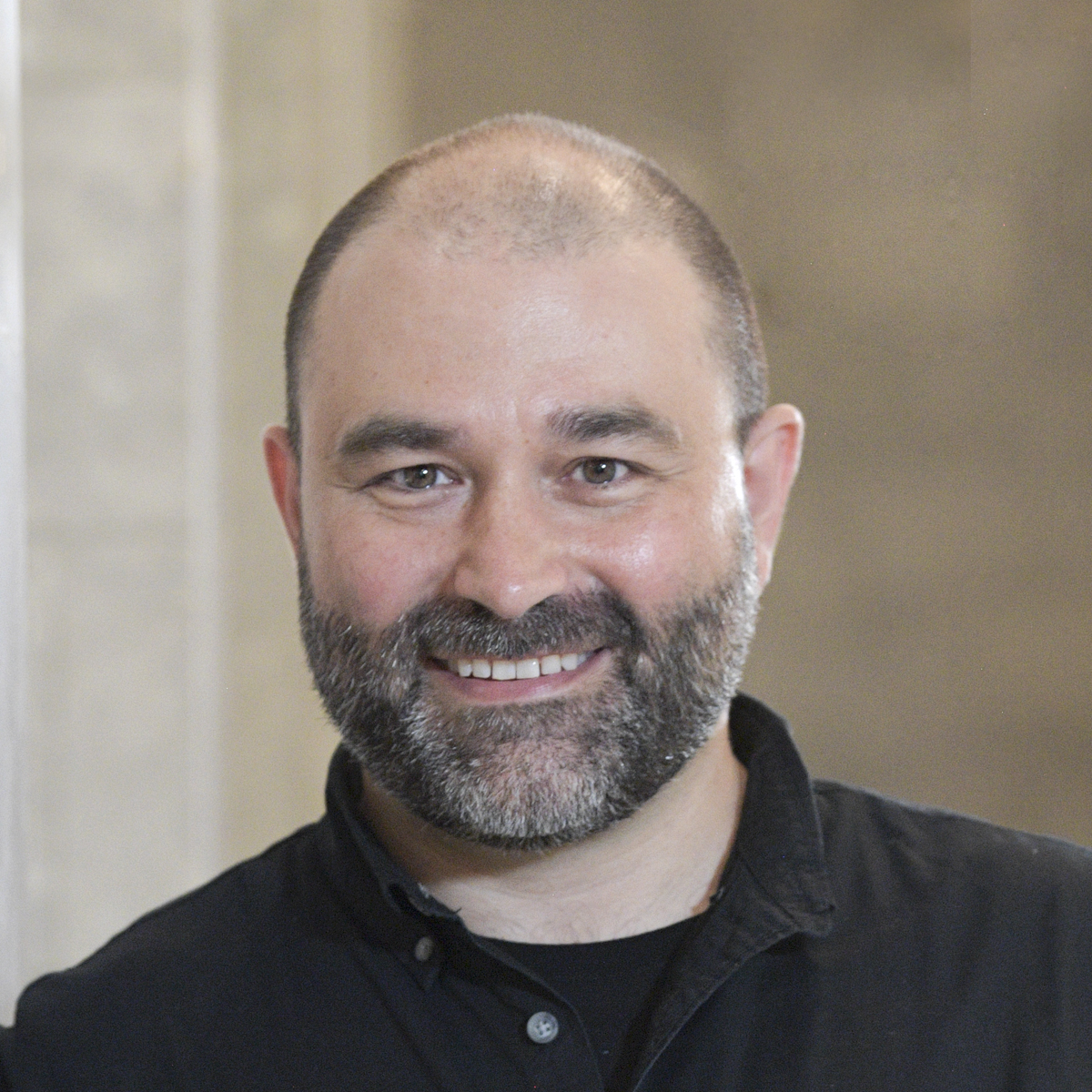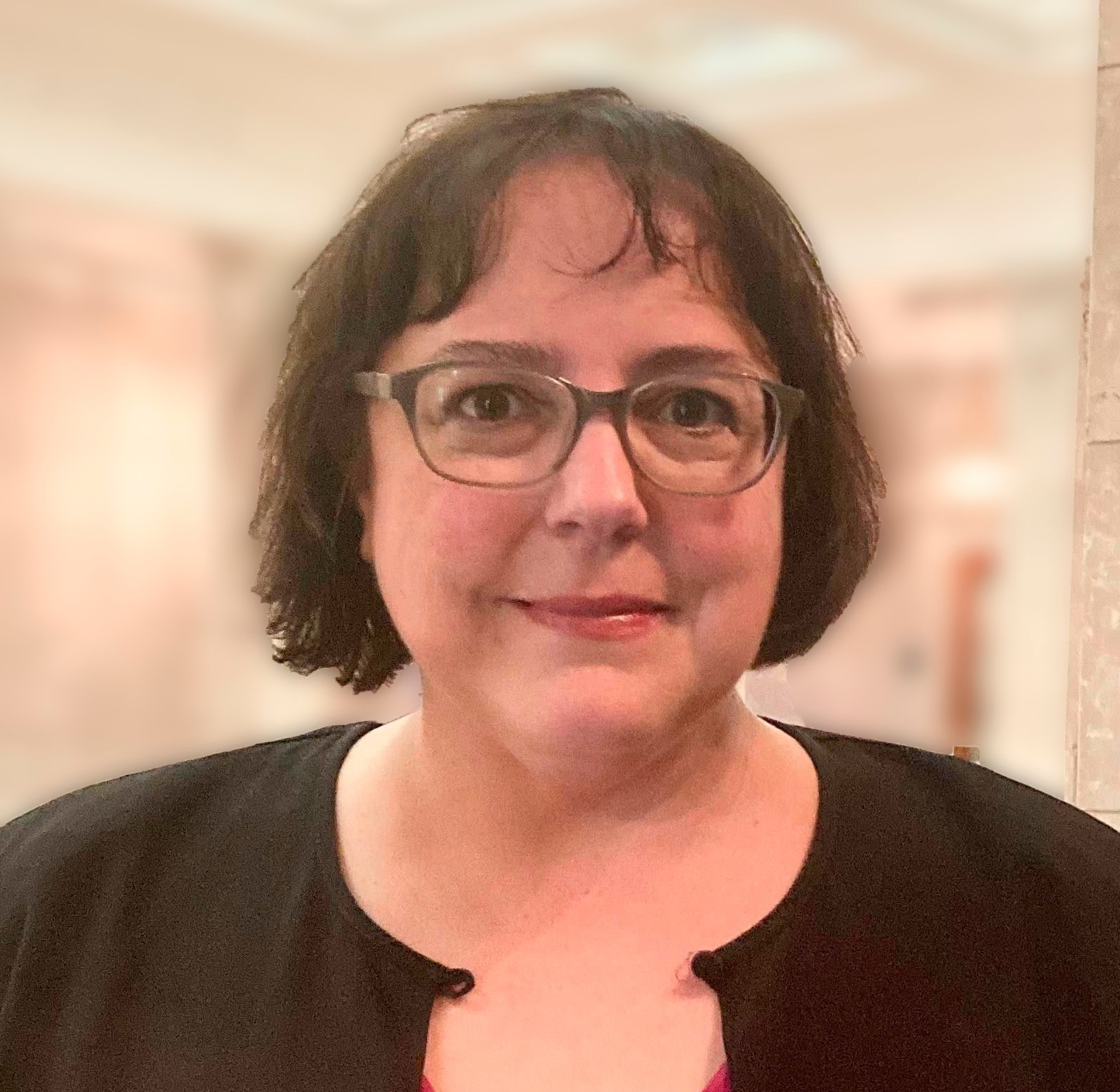March 5 2025, 17 h
Four-Year Operating grants (special call)
Deadline
Profile
Discipline
Orientation
This new program will enable organizations currently supported on a two-year basis to access four-year funding, giving them greater predictability in fulfilling their mission.
Four-Year Operating grants (special call)
Important
With the elimination of two-year grants, all organizations currently receiving two-year operating grants are invited to apply for a four-year operating grant and join Year Two of the four-year cycle already in progress. The duration of the multi-year operating grants provided as part of this call for applications will therefore be a maximum of three years, covering the years 2025, 2026 and 2027.
Introduction
Although the Conseil is committed to the needs of the Montréal arts community and is well aware of the recent inflationary climate, the amounts granted will be determined on the basis of the organization’s budgetary capacity, with 91% of the budget coming from the Urban Agglomeration of Montréal.
The Conseil is also aware of the limited resources available, whether material, human or financial. In addition, the Conseil would like to emphasize that peer evaluators examine the extent to which the organization’s planned activities are in line with its capabilities and resources. This approach aims to promote sustainable, equitable and safe working conditions for all staff, artists, volunteers and affected communities. This evaluation takes into account the relevance and impact of actions, which take precedence over the number of activities conducted. Finally, the Conseil also recognizes the positive effects of initiatives to pool and share tools, practices or resources implemented by the artistic community.
Who is this program for?
This program is exclusively for professional arts organizations that are currently receiving two- year operating grants from the CAM.
What are the program’s objectives?
This program aims to support the research, creation, production and dissemination of artistic projects and the implementation of activities and/or services that improve artists’ working conditions. The Conseil helps them fulfill their mandates by providing financial support for four years on a recurring basis to various arts organizations, associations, alliances or service organizations, based on their artistic merit and their impact on their community.
Any questions?
Attend an information session.
Support
What assistance is provided?
Through the operating grants, the Conseil aims to provide organizations with financial stability, enabling them to better plan and manage all of their mandate-related activities.
How long does the support last?
Exceptionally this year, operating grants are awarded for the last three years of the current cycle, as determined by the dates of the organization’s fiscal year. The years in question are 2025 to 2027 (or 2025–2026, 2026–2027 and 2027–2028, depending on your fiscal year).
The Conseil des arts de Montréal’s financial commitment may be interrupted or modified:
- if an organization ceases operations
- in the event of a change in artistic leadership, mandate or activities that are not approved by the Conseil
- where activities or the progress in files are deemed unsatisfactory when the final reports are received
- in the event of a deficit: an organization with an accumulated deficit (net assets) of 10% or more of its net revenues
- based on the Conseil’s financial capacity and in accordance with the Withdrawal of Support Policy
Eligibility
What types of projects are eligible?
- Creation/production
- Presenter
- Festivals/events
- Publication of cultural magazines
- Production support
- Museums
- Service organization, association or group
For organizations with a double mandate:
- creation/production and presenter
- creation/production and festivals/events
- creation/production and production support
- presenter and festivals/events
- presenter and production support
An organization whose double mandate is not included in the above list is invited to contact the cultural advisor in charge of their sector.
N.B.: It is the organization’s responsibility to determine in which discipline and for which mandate it wishes to be evaluated.
What are the general eligibility criteria?
Terms and conditions
- be a non-profit organization or non-profit cooperative that pays no dividends
- be headquartered on the island of Montréal
- have a board of directors whose members are mainly Canadian citizens or permanent residents of Canada
- have as principal mandate either to research, create, produce and disseminate creative work in the arts, or to bring together or represent artists or cultural workers in a specific artistic discipline or in multidisciplinary arts.
Professionalism
- possess a level of recognized and demonstrable competence
- be managed by qualified individuals
- have stable artistic leadership and/or senior management (depending on the organization’s management model)
- present activities of recognized artistic value
- bring together, represent or employ professional artists and/or cultural workers
What are the special eligibility criteria?
Organizations must be receiving two-year operating grants from the Conseil at the time of application.
Organizations that applied to the Four-Year Operating Grants Program in 2024 are ineligible for this call. They must complete their current cycle before submitting a new application to this program.
Only organizations accepted under the Two-Year Operating Grants Program in 2023 are eligible for this call for applications for four-year operating grants.
When must the activities be carried out?
The organization must carry out its activities according to its projected schedule for the 2024 to 2027 support cycle (2025–2026 to 2027–2028), taking into account its fiscal year.
How many applications will be accepted?
The number of applications accepted by the Conseil will vary depending on the number of applications received, the peer evaluation as well as the financial capacities of the Conseil.
Who is ineligible to apply?
Applicants
- Organizations that do not meet the general eligibility criteria
- Individual artists
- Artist collectives
- Cultural magazines that produce fewer than two issues per year, or are distributed free of charge (in the case of an exclusively web-based magazine, the number of published texts must be equivalent to two issues per year and may be distributed free of charge)
- Organizations that did not produce the final report(s) for funded projects or activities or that did not meet specific conditions issued by the Conseil under the General Funding Program
- Organizations incorporated as general or limited partnerships
- Public or parapublic organizations representing governments or municipal corporations
- Organizations that, in certain special cases, receive support or carry out a mandate from the City of Montréal for its dissemination activities
Activity sectors
- Organizations dedicated to teaching, education, and professional training
- Organizations working exclusively in variety arts or comedy
- Organizations working exclusively in cultural mediation
- Organizations exclusively engaged in trade union activities
Applications
- Incomplete applications
- Applications received after the deadline
The Conseil will automatically reject ineligible applications.
Accessibility
Can specific populations receive additional financial support to submit their application or complete their project (accessibility costs)?
Yes. Accessibility costs refer to costs that certain individuals, particularly those who are D/deaf and/or living with a disability, must pay to take advantage, in the same way as others do, of the services and programs offered by an institution for research, to create, produce or disseminate their art. Reimbursement of part of these costs by the Conseil des arts de Montréal may offset the financial disadvantage.
The Support Fund for Accessibility Costs is a financial assistance measure that complements the Conseil’s other programs. The deadline to apply for support for accessibility costs is the same as that for the program being applied to.
Artists, collectives or organizations that have obtained financial assistance from the Conseil to carry out a project can also file an application for accessibility cost support up to three months after the decisions related to the successful project have been sent out, provided the project is not completed before the deadline to send out decisions for accessibility cost support applications.
Support is divided into three components:
- component 1 – Financial support to submit a grant application or to apply for one of the Conseil’s initiatives
- component 2 – Financial support for accessibility costs for a project funded by the Conseil
- component 3 – Financial support for presenter organizations for accessibility costs to welcome audiences for a project funded by the Conseil
For more details, please see this additional information on the Support Fund.
Application
Who should submit the application?
The person who oversees the organization’s activities (administration, management) or is appointed by the board of directors.
Can I submit an application in English?
In accordance with the government’s language policy and the Conseil’s obligations under the Charter of the French Language, all applications must be submitted in French. Only Indigenous organizations can submit an application in English. The questions on the form remain in French.
What information and documents must I include in my application?
If not already included on the organization’s ORORA profile:
- financial statements from the last completed fiscal year signed by two members of the board of directors
- the organization’s letters patent, including all pages of the document
- the organization’s constitution and bylaws
- organizational policies, standards or other regulations, if applicable
- the self-identification form relating to the organization
Also, directly in the ORORA form:
- a list of links (no more than four) to excerpts or complete versions (depending on the discipline) of works or activities related to the application.
- if desired, an additional appendix (in a single PDF file) comprising any documents that you deem relevant but are not essential to understanding the contents of the application.
Important! Organizations must ensure that their ORORA profile is complete and up-to-date before submitting their application.
Can I submit an application in English?
In accordance with the government’s language policy and the Conseil’s obligations under the Charter of the French Language, all applications must be submitted in French. Only Indigenous organizations can submit an application in English. The questions on the form remain in French.
How can I submit an application?
Most of the applications to the Conseil des Arts de Montréal will progressively be submitted through the ORORA online application portal.
Evaluation
How are applications evaluated?
With the help of peer evaluators that make up the evaluation committees in each discipline, the Conseil assesses all applications on the basis of merit and awards grants in accordance with the funds available.
What are the Conseil’s possible responses to my application?
- Continue providing operating grants (with three possibilities: grants of the same amount, increased grants or decreased grants)
- Maintain operating grants subject to certain conditions. If the organization is unable to meet the conditions, the Conseil may change its decision, with or without changing the grant amount or terminating operating grants.
- Terminate operating grants while providing project funding (If you select this option and fill out the available form at the time of application)
- Terminate operating grants
What happens if the evaluation committee does not recommend the application for operating support?
An organization whose application for operating grants is not recommended by the evaluation committees may avail itself of one of the following two options:
- Submit an application for project funding under the General Funding Program according to the call for application dates and the program requirements and standards.
- If it so wishes, submit in response to this call for applications for operating grants an optional evaluation request in accordance with the standards and requirements of General Funding Program operating grants. Thus, if an application for operating grant rollover is not recommended, the evaluation committee could evaluate the proposed project without waiting for a further application to be submitted. In this event, the summary project description, the amount requested to carry it out and the estimated budget must be submitted in the appropriate section of the operating grant application form.
Please note that this is the only valid option for submitting to the peer evaluators a description of the project you wish to propose. Organizations are not permitted to apply for project funding at the same time as they apply for four-year operating grants in response to the call ending March 5, 2025.
To take advantage of this option, the organization must meet the following requirements:
- It must not have submitted an application for project funding under the General Funding Program in response to the November 20, 2024 or March 5, 2025 calls (regardless of the outcome of any such application)
Please note that to be eligible, the project may not be completed prior to May 20, 2025.
The Conseil does not fund activities that took place before the end of the evaluation process. In the event that the organization receives project funding rather than an operating grant, the funding provided will be in the form of a one-time, non-recurring grant.
What are the evaluation criteria?
There are two categories:
- evaluation based on the organization’s mandate
- evaluation based on the Conseil’s strategic impact priorities
Based on the organization’s mandate
Creation/production mandate
Artistic quality 55%
- Clarity of artistic vision and mission
- Artistic quality, audacity and originality of past achievements and planned projects
- Consistency of activities with the artistic vision and mission
Public outreach 15%
- The merits and effectiveness of partnerships that strengthen the relationship between the arts and various communities and that promote the visibility of their work
- Effectiveness of outreach strategies for target audiences
- Relevance of initiatives to disseminate and circulate works locally, nationally and/or internationally
The organization’s contribution to its sector’s development 15%
- Provides working conditions and/or measures that contribute to creating and maintaining a sustainable, equitable and safe environment for all its teams (permanent or contract staff, freelancers and volunteers)
- Significant spin-offs and impact in their community (artistic and/or professional development activities with artists and cultural workers)
- Relevance and efficiency of partnerships to enhance artistic proposals and contribute to the development of the sector(s)
Governance and financial position 15%
- Ability to effectively manage activities and complete projects, in accordance with its human and financial resources
- Consistency between proposed activities and the organization’s available resources
- Evidence that the organization’s financial position is stable and balanced
- Diversity of revenue sources
- Organizational health
- Sound and representative governance
Cultural magazine mandate
Artistic quality 55%
- Clarity of editorial vision and mission
- Artistic quality, audacity and originality of past achievements and planned projects
- Relevance and quality of selected authors, artists and collaborators
- Consistency and quality of the visual presentation
Public outreach 15%
- The merits and effectiveness of partnerships that strengthen the relationship between the arts and various communities and that promote the visibility of their work
- Development of a publication plan that boosts readership
- Effectiveness of communication, marketing and promotion activities in reaching target readership
The organization’s contribution to its sector’s development 15%
- Provides working conditions and/or measures that contribute to creating and maintaining a sustainable, equitable and safe environment for all its teams (permanent or contract staff, freelancers and volunteers)
- Contribution to improving the visibility of artists, writers and organizations
- Relevance and efficiency of partnerships to enhance artistic proposals and contribute to the development of the sector(s)
- Development of a publication plan that promotes awareness of the discipline in question
Governance and financial position 15%
- Ability to effectively manage activities in accordance with its human and financial resources and complete projects
- Adherence to the publication plan
- Consistency between proposed activities and the organization’s available resources
- Evidence that the organization’s financial position is stable and balanced
- Diversity of revenue sources
- Organizational health
- Sound and representative governance
Festival, event, presenting and museum mandate
Artistic quality 55%
- Clarity of artistic vision and mission
- Artistic quality, audacity and originality of past achievements and planned projects
- Consistency of activities with the artistic vision and mission
- Efforts made to open a dialogue and meet with different disciplines (for organizations in the multidisciplinary sector)
Public outreach 15%
- The merits and effectiveness of partnerships that strengthen the relationship between the arts and various communities and that promote the visibility of their work
- The organization’s ability to reach, retain, attract audiences and build audience loyalty
- Significant impact of communication, marketing and mediation, in terms of target objectives
The organization’s contribution to its sector’s development 15%
- The organization’s sustainable contribution and impact on its community’s development and health
- Provides working conditions and/or measures that contribute to creating and maintaining a sustainable, equitable and safe environment for all its teams (permanent or contract staff, freelancers and volunteers)
- Efforts made to present works or shows with a guaranteed fee
- The quality of reception and support given to artists and organizations
- Relevance and efficiency of partnerships to enhance artistic proposals and contribute to the development of the sector(s)
Governance and financial position 15%
- Ability to effectively manage activities and complete projects, in accordance with its human and financial resources
- Consistency between proposed activities and the organization’s available resources
- Evidence that the organization’s financial position is stable and balanced
- Diversity of revenue sources
- Organizational health
- Sound and representative governance
Mandate of professional associations, alliances, service organizations and production support organizations
Mission and fulfillment of mandate 40%
- Clarity of the organization’s mission and orientation
- Consistency of activities with its vision and mission
- Audacity and quality of past achievements and planned projects
- Extent of membership and/or population served
Contribution to the development of the discipline and the arts community 40%
- The organization’s sustainable contribution and impact on its community’s development and health
- Ability to provide support or services tailored to the needs of the communities served
- Efforts made to improve the working conditions and/or the socio-economic conditions of artists in the discipline or sector concerned
- The organization’s ability to engage, retain and attract new clients, and build loyalty.
- Relevance of collaborations with networks and partners in their activity sector to enhance their service offering and promote the visibility of their work
Governance and financial position 20%
- Provides working conditions and/or measures that contribute to creating and maintaining a sustainable, equitable and safe environment for all its entire staff (permanent or contract, as well as freelancers and volunteers)
- Ability to effectively manage activities and complete projects, in accordance with its human and financial resources
- Consistency between proposed activities and the organization’s available resources
- Evidence that the organization’s financial position is stable and balanced
- Diversity of revenue sources
- Organizational health
- Sound and representative governance
Based on strategic impact priorities
Impact is divided into three categories: equity and representation, local outreach, and environmental responsibility.
Criteria based on strategic plan for equity and representation
- Significant involvement of historically underrepresented artists and cultural workers in key artistic and administrative positions
- Significant involvement of women in key artistic and administrative positions
- Emphasis on historically underrepresented arts practices
- Development of equitable and inclusive practices with respect to audiences
- Focus on intergenerational connections and the transmission of knowledge
Criteria based on strategic plan for local outreach
- Desire to get locally involved in Montréal’s artistic communities
- Fruitful collaboration with key local players in various sectors including cultural and/or community, municipal, health, education and social economy
- Enhancement of local cultural offering in the Island of Montréal’s neighbourhoods, boroughs or municipalities.
- Establishment of strong and lasting ties with the populations within the Island of Montréal’s neighbourhoods, boroughs or municipalities
Criteria based on strategic plan for environmental responsibility
- Integration and implementation of environmentally responsible practices
- Development of practices for pooling and sharing tools, resources and knowledge
Bonus based on strategic impact priorities
The score obtained in the evaluation based on the Conseil’s strategic impact priorities is added to the peer committee’s mandate-based score. With a maximum of six points, the bonus is broken down as follows:
- equity and representation: maximum 3 points
- local outreach: maximum 2 points
- environmental responsibility: maximum 1 point
Why are there criteria based on strategic impact priorities?
These criteria are based on priorities identified by the arts communities consulted in the development of the Conseil des arts de Montréal’s 2022–2025 Strategic Plan, as well as on key factors contributing to the vitality of the arts community. The Conseil seeks to recognize and enhance support for organizations that align most closely with its strategic priorities, particularly regarding strategic impact. There are various ways organizations can identify with one or more of the strategic priorities in order to receive this bonus, depending on their mandate, the nature of their activities, their history or any other specific element.
What is the response time?
It will take 13 to 15 weeks from the submission deadline for the Conseil to process the applications and reach a decision.
How will I be informed of the decision?
The representative for the organization will receive an email invitation to view the results on the ORORA platform. Decisions are never communicated by telephone.
Can I appeal the decision?
The Conseil’s decisions are final and not subject to appeal. However, the Conseil’s staff is available to answer any questions regarding the decisions rendered.
Payment
How will the grant be paid?
The grant is paid annually in two instalments:
First payment
- Year 2 (2025) – 90% after the Conseil sends the award letter
- Year 3 (2026) – 90% in the same payment period as Year 2
- Year 4 (2027) – 90% in the same payment period as Year 3
Second payment
- Year 2 – 10% upon reception and acceptance by the Conseil of the final report and financial statements, signed by two members of the Board of Directors, for the last completed fiscal year, i.e. 2025 (or 2025-2026, depending on the organization’s fiscal year).
- Year 3 – 10% after reception and acceptance by the Conseil of the final report and financial statements signed by two members of the Board of Directors, relating to the last completed financial year, i.e. 2026 (or 2026-2027, depending on the organization’s financial year)
- Year 4 – 10% after reception and acceptance by the Conseil of the final report and financial statements, signed by two members of the Board of Directors, for the last completed fiscal year, i.e. 2027 (or 2027-2028, depending on the organization’s fiscal year).
Obligations
Following receipt of a positive response from the Conseil, the organization will be asked to confirm its commitment to carry out the activities covered by the grant and to comply with the grant’s terms and conditions.
Organizations agree to:
- complete and sign the Compliance Form
- carry out activities as planned
- notify the Conseil in a timely manner of any major changes in its mandate, management (Executive or Artistic Director), board of directors and/or operations
- produce and submit required activity and financial reports to the Conseil within four months of the organization’s fiscal year-end.
- comply with the grant’s specific conditions of use, where applicable.
- publicly mention the contribution of the Conseil des arts de Montréal by reproducing the Conseil’s logo in its programs, brochures, pamphlets and other promotional materials (see Visibility section below)
- if desired, include in its report photographs, videos or any other relevant, royalty-free visuals that the Conseil may use for promotional or archival purposes
In addition, applicants agree to refrain at all times from contacting evaluation committee members or the Conseil’s board members on any matter concerning their application or any aspect of the management, evaluation, or decision that pertains to it. Only Conseil staff are authorized to respond to applicants’ questions.
The Conseil des arts de Montréal’s financial commitment may be interrupted or modified:
- if an organization ceases operations
- in the event of a change in mandate, management (Executive or Artistic Director), board of directors and/or activities that are not approved by the Conseil
- where activities or progress in files are deemed unsatisfactory when the final reports are received
- in the event of a deficit: an organization with an accumulated deficit (net assets) of 10% or more of its net revenues
- based on the Conseil’s financial capacity and in accordance with the Withdrawal of Support Policy
Visibility Standards and Logos
Arts organizations, collectives or individual receiving grant from the Conseil must mention this funding in their information, promotional, or advertising material.
Need more information?

Marie-Michèle Cron

Philippe Gendreau

Roxanne Robillard
514 280-3389
roxanne.robillard@montreal.ca


